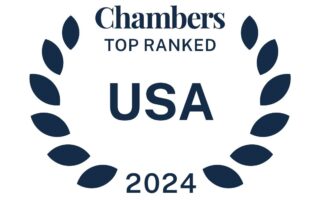Texas Supreme Court Opens Door to Article 21.21 Liability for Improper Handling of Third-Party Claim
By Jacquelyn A. Chandler • Aug 12, 2002
On May 23, 2002, the Texas Supreme Court issued an opinion expressly recognizing, for the first time, that an insured may recover under Article 21.21 of the Texas Insurance Code for unfair claim settlement practices when its insurer unreasonably delays settling a third-party liability claim. Rocor Inter-national, Inc. fka Donco Carriers, Inc. v. National Union Fire Insurance Company of Pittsburgh, Pa., 77 S.W.3d 253 (Tex. 2002).
In Rocor, the supreme court held that an insured may establish liability against an insurer under Article 21.21 in the context of a third-party liability claim if the insured shows that: (1) the policy covers the claim, (2) the insured’s liability is reasonably clear, (3) the claimant has made a proper settlement demand within policy limits, and (4) the demand’s terms are such that an ordinarily prudent insurer would accept it. Because Rocor opens the door to claims that the Texas Supreme Court appeared to have previously rejected, we anticipate that insureds will now begin to routinely assert Article 21.21 claims, along with traditional Stowers claims, in lawsuits against insurers stemming from the handling of a third-party liability claim.
Background
The actual facts in Rocor involved a claim against Rocor International, Inc., a trucking company, whose driver, Ralph Mueller, was involved in an accident after consuming a considerable amount of alcohol. Mueller swerved off the road, hitting and killing two police officers. The families of the officers sued Rocor. Rocor was insured under a fronting policy providing a $1 million limit with a $1 million deductible through Guaranty National Insurance Company. Rocor also had an $8 million umbrella policy issued by National Union. Both policies placed the duty to defend on Rocor. The National Union policy, however, obligated Rocor to cooperate with National Union in settling claims.
After the suit was filed, Rocor’s attorney began investigating the accident and determined that Rocor would probably face significant liability if the case went to trial. Accordingly, Rocor began settlement negotiations with the plaintiffs. The plaintiffs’ lawyer initially informed Rocor that he considered the case to be a “policy limits,” or $10 million, case and advised the company that the plaintiffs might be receptive to some form of structured settlement. National Union was advised that liability would likely reach the excess coverage layer. Thereafter, National Union decided to take charge of the settlement efforts.
Over the following fourteen months, the parties exchanged several settlement propositions for widely varying amounts. At one point, a Rocor representative reported to Rocor and Guaranty National that the plaintiffs’ attorney had orally offered to enter into a $4.5 million structured settlement. The Rocor representative reported that in response, National Union had offered to settle the case for $2,848,267. The plaintiffs’ attorney later testified that the $4.5 million settlement offer was to settle the adults’ claims only and that the plaintiffs were willing to offer to settle the children’s claims for an additional $1.8 million. The plaintiffs’ lawyer testified that he believed he had communicated this offer to National Union’s attorney. The only written settlement offer, however, was a May 4, 1990 offer for $10,000,000. Apparently, other settlement discussions occurred with verbal offers ranging from $3.2 million to $9 million.
Ultimately, in December 1990, National Union settled the children’s claims for $1.8 million. In March of 1991, National Union settled the adults’ claims for $4.6 million. Thereafter, Rocor filed suit against National Union to recover attorney’s fees and costs that it incurred as a result of National Union’s alleged failure to promptly effectuate settlement. Rocor asserted claims based on negligence, Article 21.21 of the Texas Insurance Code and the Texas Deceptive Trade Practices Act (“DTPA”). The trial court ultimately determined that Rocor could not seek DTPA relief because it was not a “consumer” under the Act. Rocor did not challenge that decision on appeal.
A jury found that National Union’s negligence proximately caused Rocor’s damages, and that it knowingly engaged in unfair or deceptive acts or practices in the business of insurance. The trial court, however, granted judgment n.o.v. on the grounds that Rocor could not maintain a common-law negligence or Article 21.21 cause of action, or, alternatively, that there was no evidence to support the jury’s finding. The court of appeals, sitting en banc, reversed the trial court’s judgment. Three justices concluded that Rocor could assert claims for common-law negligence and for violation of Article 21.21. Two justices believed that Rocor could recover for common-law negligence, but not for an Article 21.21 violation. Two justices dissented, stating that they did not believe Rocor could recover under either theory. Both Rocor and National Union filed petitions for review with the Texas Supreme Court.
Application to Third-Party Claims
Of primary significance, the supreme court addressed whether Article 21.21 permits an insured to recover defense costs it incurred because its insurer unreasonably delayed settling a third-party liability claim. In holding that Article 21.21 permits such an action, the court noted that nothing in Article 21.21’s language or in its underlying purpose reflects any limitation on the statute’s application solely to first-party claims. The court also emphasized prior holdings, recognizing the legislature’s intent under Article 21.21 to comprehensively regulate and prohibit deceptive insurance practices.
In reaching its decision, the court interestingly noted its holding in American Physicians Insurance Exchange v. Garcia, 876 S.W.2d 842 (Tex. 1994). In Garcia, the court had previously concluded that a breach of the Stowers duty did not constitute a violation of Article 21.21. The Garcia opinion also seemingly recognized that Article 21.21 applies only to first-party claims. In contrast, however, the Rocor court concluded that nothing in Garcia was intended to limit an insured’s statutory claims against its own insurer for unfair claim settlement practices to first-party claims.
Reasonably Clear Liability
In holding that an insurer faces liability under Article 21.21 for failing to reasonably and promptly settle a third party’s claim against its insured when liability has become “reasonably clear,” the court concluded that the Stowers standard applicable to common-law claims is also applicable to the reasonably clear standard under Article 21.21. The court found that applying the common-law Stowers standard promotes uniformity and prevents insurers from facing conflicting liability standards for failing to settle lawsuits filed by third-party claimants. The court, therefore, held that an insurer’s statutory duty to reasonably attempt settlement of a third-party claim against its insured is not triggered until the claimant has presented the insurer with a proper settlement demand within policy limits that an ordinarily prudent insurer would have accepted. The court noted that a proper settlement demand generally must propose to release the insured fully in exchange for a stated sum, although it may substitute the “policy limits” language for the specified amount. Under the actual facts of Rocor, the court found that there was no evidence to support the jury’s finding that National Union engaged in unfair claims settlement practices under Article 21.21. The court concluded that there was no proper settlement demand that clearly stated a sum certain and proposed to fully release the insured.
Negligence
The court also addressed National Union’s argument that the court of appeals erred in rendering judgment against it based on a negligence theory. National Union argued that Stowers defines an insurer’s common law duty to settle third-party claims against its insured, and that there can be no Stowers liability without an excess judgment against the insured. The court ultimately declined to determine whether Rocor could recover damages on a common-law negligence theory. The court held that Rocor must first establish that National Union was presented a proper settlement demand within policy limits that an ordinarily prudent insurer would have accepted. Because there was no evidence of such a demand, the court found that it was fatal to Rocor’s negligence claim. The court, however, left open the possibility that negligence is also an appropriate avenue of recovery where an insurer unreasonably fails to settle a third-party liability claim.
Departure from Prior Case Law
In a concurring opinion, Justices Hecht and Owen noted that the majority essentially disregards the plain words of its prior opinion in Garcia. The concurring opinion specifically points out the language in Garcia where the court held that “[b]reach of the Stowers duty does not constitute a violation of Article 21.21 or the DTPA.” The concurring opinion rightly notes that this language is plainly inconsistent with the majority opinion which attempts to explain the contradiction by simply stating that it was not the court’s intent in Garcia to limit an insured’s statutory claims against its own insurer for unfair claim settlement practices to first-party claims. Justices Hecht and Owen, nevertheless, concurred in Rocor because there was no showing that any settlement should, or could, have occurred between Rocor and the plaintiffs.
Implications of Rocor
The most significant impact of Rocor will be an increase in the number of insureds who assert Article 21.21 claims in lawsuits against insurers stemming from the handling of third-party liability claims. Although insureds are entitled only to actual damages in a common-law Stowers case, under Article 21.21 they are potentially entitled to treble damages. While the facts of Rocor are somewhat unique — Rocor was responsible for its own defense costs and, therefore, was arguably directly damaged by the excess insurer’s delay in settling — plaintiffs’ attorneys in other situations will likely seek recovery under Article 21.21 for damages such as mental anguish and loss of credit reputation. Likewise, because Rocor leaves open the question of whether recovery for negligence is appropriate where the insurer unreasonably delays in settling a third-party liability claim, many insureds will also assert a negligence claim along with an Article 21.21 claim. This is particularly true where an insured can show damages, such as mental anguish, caused by a delay in settling a third-party claim, but where there is not necessarily an excess judgment.





